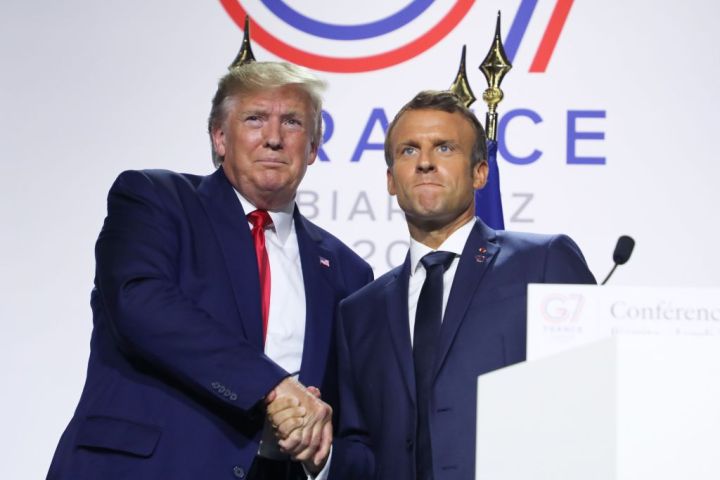
The United States and France reached a deal on European nation’s controversial digital tax on Big Tech, President Donald Trump and French President Emmanuel Macron said at the G7 summit on Monday.
The 3% tax, which France passed in July, targets Big Tech companies like Facebook, Amazon, Google, and Apple – any company that makes more than 750 million euros ($830 million) annually from “digital activities.” The companies also need to have made at least $25 million euros ($27 million) in revenue in France. The tax applies retroactively to all money made since January 1, 2019.
“We’ve done a lot a work on the bilateral basis, we have a deal to overcome the difficulties between us,” said Macron during a joint press conference with Trump in Biarritz, France, according to Reuters.
Under the proposed deal, France would pay back companies the difference between the French tax and a new international one being drafted by the Organization for Economic Cooperation and Development (OECD). U.S. Treasury Secretary Steve Mnuchin, White House economic adviser Larry Kudlow, and French Finance Minister Bruno Le Maire negotiated the deal amid the G7 summit.
Trump had previously called France’s tax unfair and threatened to impose a levy on French wine in retaliation.
“If they do that … we’ll be taxing their wine like they’ve never seen before,” he said on Friday, according to Reuters.
Tech giants argued that the French tax would disproportionately affect American companies – since the four biggest tech companies in the world are located in the United States.
France’s tax – and the upcoming OECD one – aim to solve the tricky problem of how to tax giant multinational tech companies that do business in countries all around the world via the internet, but may not have a significant office or operating presence in each of them. Facebook, for example, is based in the United States, but can be accessed from almost anywhere on Earth with an internet connection.
We reached out to a spokesman for the Internet Association, a lobbying group for the tech industry. including companies like Facebook, Amazon, Google and Uber, but he declined to comment when asked for the group’s reaction to the deal.
Editors' Recommendations
- White House unveils 31 U.S. tech hubs to boost industry
- Alaska Airlines to offer digital baggage tags in U.S. first
- LG’s smartphone departure allows OnePlus, Moto, and Nokia to win big in the U.S.
- Hackers target U.S. government agencies as FBI investigates
- TikTok reaches deal to sell its U.S. operations to Oracle




